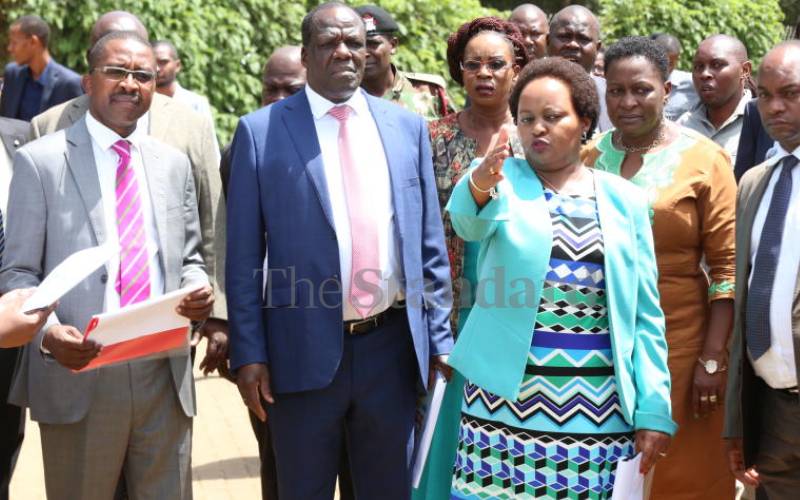×
The Standard e-Paper
Stay Informed, Even Offline

Governors, from left, Mwangi Wa Iria (Murang'a), Wycliffe Oparanya (Kakamega) and Anne Waiguru (Kirinyaga) at Kutus Town, February 2019. [Kibata Kihu, Standard]
Allow me to detour from my tradition of arguing my views and policy opinions using numbers. I want to tell a story, share an amazing experience, opine on the good and the ugly of Kenya’s devolution experiment. One may wonder who am I or where do I get the moral authority from to warrant this precious space to tell my story.